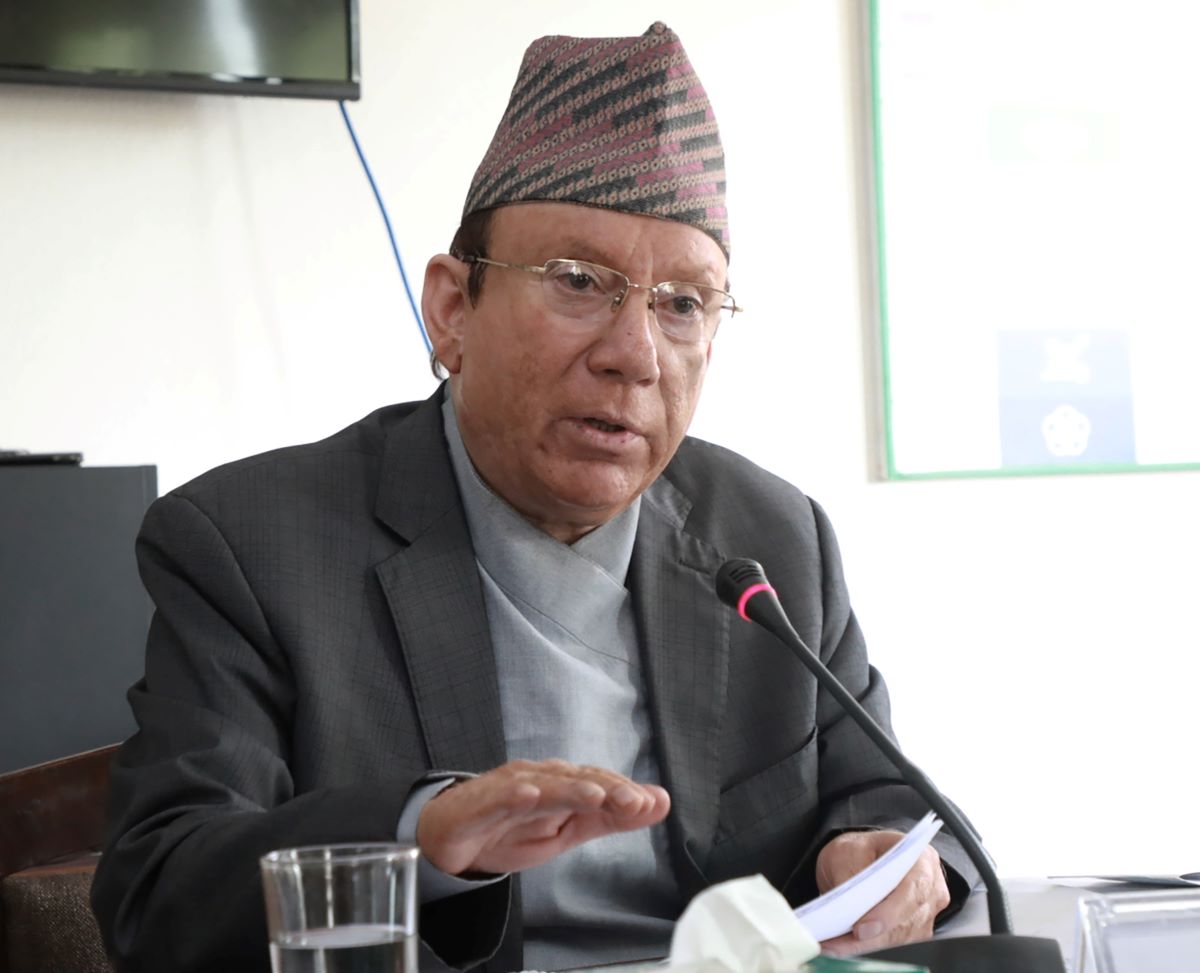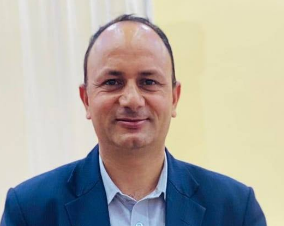CJ Raut to present judiciary reform report in full court session

Kathmandu, October 22 — Chief Justice Prakashman Singh Raut is scheduled to present a report concerning the anomalies within the judiciary for discussion in a full court session. He has convened a meeting for this purpose on Tuesday to deliberate on the report, which was prepared under the leadership of former Chief Justice Harikrishna Karki.
The report had previously been shelved after judges refused to engage in discussions on its implementation when it was presented in the full court.
In 2020, a committee was established to study the anomalies, discrepancies, and corruption within the judiciary. This committee, chaired by Karki, submitted its report to then-Chief Justice Cholendra Shumsher Rana on July 29, 2021. Following the reluctance of Rana to implement the 234-page report at that time, protests ensued against him.
After the impeachment and subsequent suspension of then-Chief Justice Rana, the report was presented in the full court on February 18, 2022. However, the full court has since delayed any action on the report for three years. During the parliamentary hearing for Raut's appointment as Chief Justice, members raised questions due to his affiliation with the committee, to which he pledged to bring the report to fruition during his tenure.
"I stated during the parliamentary hearing that I would advance the implementation of this report. It will be discussed in the full court tomorrow," Chief Justice Raut stated on Monday. "As one of the members involved in preparing the report, it is my responsibility as well. Some aspects have been implemented, while others remain pending, so we will move forward."
Initially, the dual character of then-Chief Justice Rana hindered the implementation of the report, and subsequently, other judges did not exhibit a positive attitude, leading to its continued delay. However, Chief Justice Raut is now attempting to advance its implementation, though justices of the Supreme Court argue that moving forward with the report is not a straightforward task.
There is a lack of consensus among the Supreme Court justices regarding the report, and they argue that it could further complicate issues within the judiciary. Chief Justice Raut faces the challenge of reminding his colleagues to proceed with a unified understanding.
To address the anomalies within the judiciary, former Chief Justice Rana established a committee on July 15, 2020, led by then-Justice Harikrishna Karki, with Justice Raut as a member.
In light of the feedback from the upcoming full court session, Raut has indicated that he will take steps regarding the report, demonstrating his intention to implement at least parts of it since becoming Chief Justice.
The committee, tasked with studying potential anomalies, discrepancies, irregularities, or corrupt practices within the judiciary and proposing preventive measures, included prominent members such as Chandeshwar Shrestha (then President of the Nepal Bar Association), Lila Mani Poudel (General Secretary), Purna Man Shakya (then President of the Supreme Court Bar), Rishiram Ghimire (Secretary), Nirmala Poudel Bhattarai (Registrar of the Supreme Court), and Padam Prasad Pandey (Deputy Attorney General) as members, with Narayan Prasad Regmi as Secretary.
Initially, the Karki committee was directed to submit a report with recommendations within three months. The committee began its work on September 24, 2020. However, it was unable to present the report by January 2021, citing reasons related to the COVID-19 pandemic and holidays such as Dashain, Tihar, and Chhath, leading to several extensions until the report was finally submitted to Chief Justice Rana on July 29, 2021.
Report stalled due to claims that judges themselves act as intermediaries
Chief Justice Raut asserts that the report contains numerous recommendations for judicial reform, emphasizing the need for its implementation. He claims that the judiciary will become more transparent and operate openly. He has clarified his position that while the judiciary has traditionally operated in a certain manner, it must be gradually improved.
However, Supreme Court justices have argued that pages 54 and 55 of the report state that "the judges of the court themselves act as intermediaries," making it difficult for the full court to approve it.
"Some judges assume the role of intermediaries, while intermediaries take on the cases, exacerbating the problem due to certain influential and professional intermediaries," the report states. "The identification, estimation, control, and action regarding intermediaries present significant challenges."
Transparency in Court
Chief Justice Raut has stated that the judiciary's primary weapon is public trust, which he aims to uphold while transforming it into a transparent institution.
He has expressed his commitment to prioritizing transparency, accountability, and the fair administration of justice. He noted that the Judicial Council will prioritize the appointment of judges and initiate the process for appointing four judges to fill existing vacancies in the Supreme Court.
"As I am now in leadership within the judiciary, I will assume responsibility for all the anomalies that exist here," he declared. "It is also my duty to eradicate these issues. I will approach this impartially. If all parties cooperate, it is not impossible."
Chief Justice Raut reiterated that judicial reforms will not be halted, regardless of any adverse circumstances. "You will certainly see some differences during my tenure. I have mentioned this during parliamentary hearings, and I reiterate here—let us openly report the anomalies within the judiciary. We will act impartially."
He contended that judicial appointments will be made based on merit. He stressed the need for cooperation from the media, stating that the court cannot achieve its goals in isolation.










Leave Comment